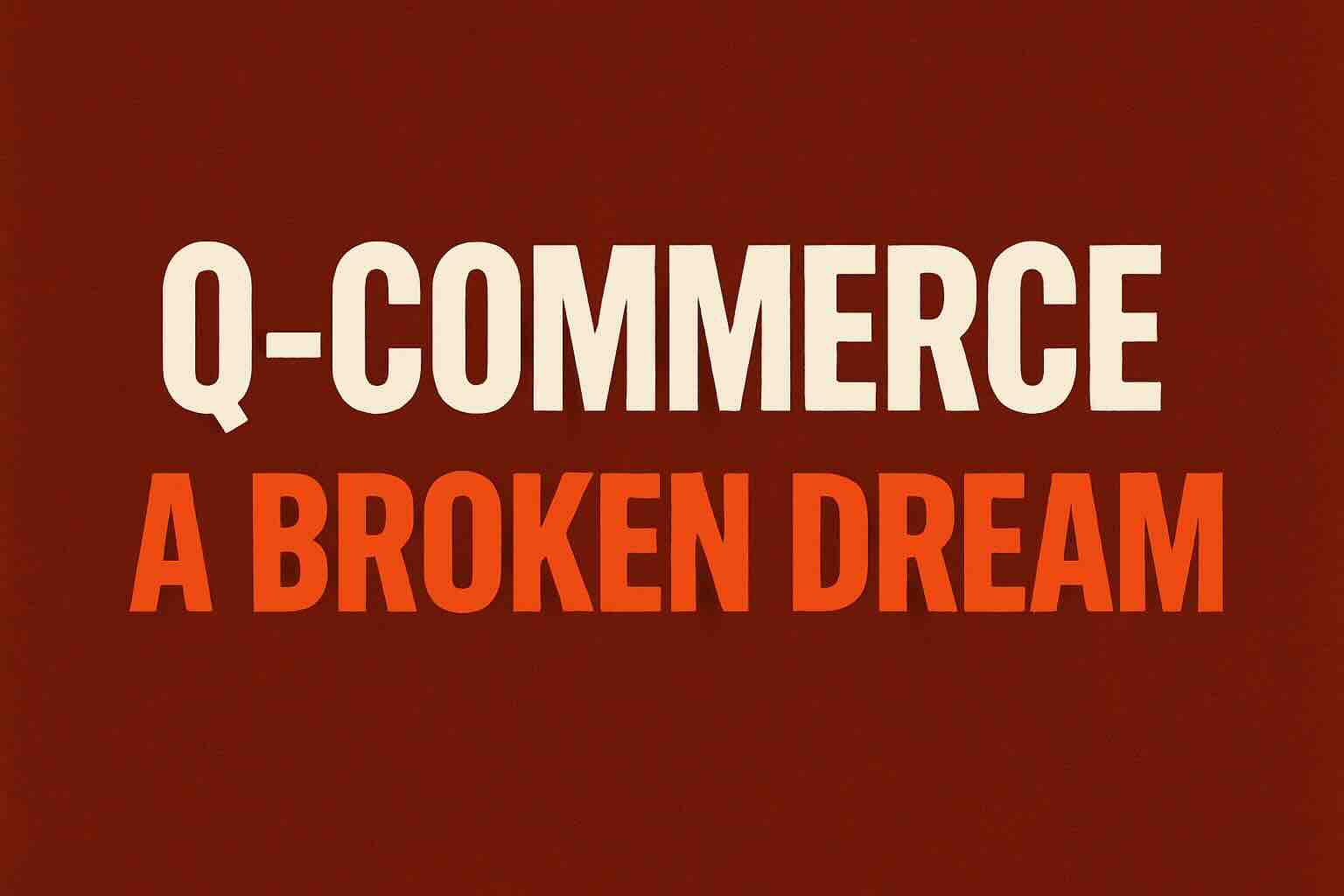
Q-Commerce: The Numbers Don’t Lie, It’s a Broken Dream
Let’s face it — Q-Commerce, or quick commerce, was never about logic. It was about hype. About promising the impossible: groceries at your door in 10 minutes, no matter the cost. And boy, was that cost brutal.
The illusion of convenience
From Zepto to Blinkit to Gorillas, startups across the world sold the idea that time is everything — that you can buy convenience faster than your hunger pangs could kick in. But beneath the marketing glitter, the math never worked. Burn rates skyrocketed, margins evaporated, and investors were left wondering how 10-minute deliveries could ever make 10 cents in profit.
The harsh math behind the magic
Dark stores, idle riders, cold-chain setups, and unpredictable demand — each added layers of cost. For every ₹100 order, some companies spent ₹130 to fulfill it. Subsidies masked the pain, but you can’t run a business forever on discounts and VC fumes. Many global players like Getir and Gorillas have already downsized, merged, or exited markets completely. The pattern is painfully consistent: the faster they delivered, the faster they fell.
Why we refuse to play the same game
At Yori, we’re not chasing 10-minute miracles. We’re building something far smarter — a system that finds the optimum delivery time for each order, balancing customer delight and operational efficiency. We believe speed must serve profit, not destroy it. Our model prioritizes clustering, intelligent routing, and lean local partnerships that make each delivery worthwhile for every stakeholder — the customer, the merchant, and the rider.
The future belongs to profitable logistics
The Q-Commerce dream is collapsing under its own weight. The world doesn’t need another company burning billions for bragging rights. It needs a platform that can actually sustain itself — and grow. That’s why Yori’s promise is simple: we deliver fast enough to delight, and smart enough to profit from day one.
Because in business, logic always beats speed.